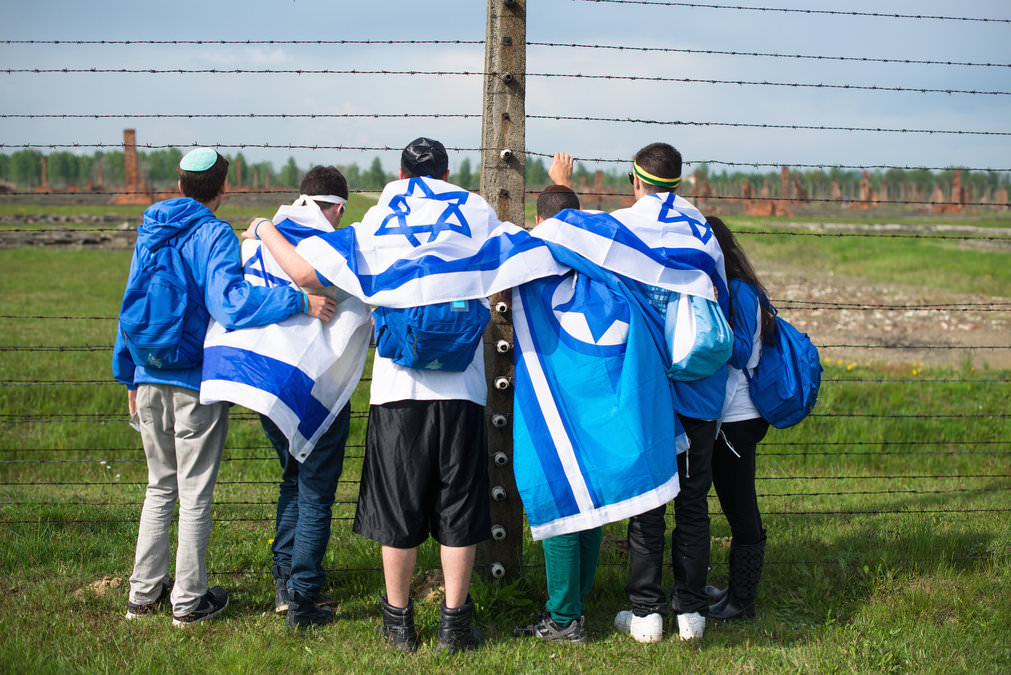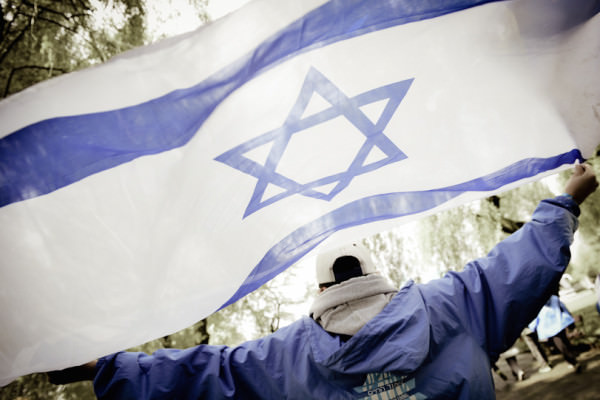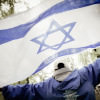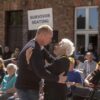Programs like March of the Living inculcate the knowledge and values urgently needed to counter the forces of intolerance

As the summer sun begins to wane, and the air becomes infused with the promise of a new school and academic year, a profound historic significance coincides with this season of renewal. On September 1st, a date etched in history as the outbreak of the Second World War, we are presented with an opportunity to reflect upon the lessons that this monumental global conflict has to offer. While the war’s impact on politics, economics, and global dynamics is undeniable, one critical lesson that should never fade into the past is the immeasurable danger of hatred. Central to this lesson is the imperative of teaching about the Holocaust, an unparalleled tragedy that serves as a chilling reminder of humanity’s capacity for cruelty.
The annals of history are replete with stories of wars and conflicts, each carrying its own lessons and warnings. However, the Second World War stands as a stark reminder of how unchecked hatred can lead to unimaginable suffering. More than eight decades later, as we commemorate the anniversary of its beginning, we are reminded of the sheer scale of destruction, loss of life, and the displacement of millions of people. This war was born out of an environment marred by intolerance, prejudice, and ethnocentrism. Nationalistic fervor fuelled animosity between nations, ideologies, and ethnicities, culminating in one of the most destructive events in human history.
Among the myriad horrors that transpired during this time, the Holocaust remains a haunting testament to human depravity. The systematic, state-sponsored genocide orchestrated by the Nazi regime led to the annihilation of six million Jews, along with the murders and persecution of countless others based on their ethnicity, political beliefs, disabilities, and sexual orientations. The Holocaust serves as a chilling reminder of the consequences of unchecked hatred, discrimination, and the abrogation of human rights. It reminds us that indifference and silence can pave the way for the most heinous acts.
For the March of the Living – the international Holocaust memorial and education organization which each year leads thousands of people, many of them survivors and their descendants to march a march of life at Auschwitz – teaching about the Holocaust is not merely a historical obligation; it is a moral imperative. An imperative that only grows as the number of survivors and firsthand witnesses to the enormity of the Holocaust dwindles. The lessons it imparts resonate across generations, serving as a powerful antidote to the seeds of hatred that still exist in our world today.
By educating our youth about the Holocaust, we equip them with the tools to recognize and challenge prejudice, intolerance, and discrimination. It fosters empathy and cultivates a sense of responsibility to safeguard the dignity and rights of all individuals, regardless of their background. Moreover, the study of the Holocaust underscores the importance of critical thinking, media literacy, and the vigilance required to prevent the manipulation of information and the dissemination of harmful ideologies.
As we embark on a new school year, educators bear the profound responsibility of shaping young minds and nurturing future leaders. Integrating Holocaust education into curricula is not a mere exercise in revisiting history; it is an investment in the future. March of the Living works to bring the memories of the victims alive by walking in their steps. By instilling in students a deep understanding of the consequences of hatred, we empower them to become active agents of change in a world that is still grappling with intolerance and bigotry. Holocaust education encourages students to question the status quo, challenge narratives that perpetuate prejudice, and promote social justice. It equips them with the moral courage to speak out against discrimination in all its forms.
In a world grappling with the resurgence of hate speech, xenophobia, and divisive rhetoric, the lessons of the Second World War and the Holocaust are more relevant than ever. It is disheartening to witness the persistence of ideologies that promote discrimination and dehumanization. As the memories of those who lived through the war fade away, it becomes increasingly crucial to anchor our collective consciousness in the realities of that era. History is not a distant concept; it is a living testament that shapes our present and guides our future.
Let us remember the historic significance of this September 1st. Beyond marking the outbreak of the Second World War, it is a call to action – a reminder that the lessons of history must not be confined to textbooks or museum exhibits. It is a reminder that the fight against hatred is ongoing, and our commitment to tolerance and understanding must be unwavering. By confronting the shadows of hatred, we honor the memory of those who suffered and perished during those dark times. We forge a path towards a more just and compassionate world, one where the horrors of the past serve as a constant reminder of the responsibility we bear to build a future free from the shackles of hatred.
In the spirit of a new academic year, let us pledge to carry forward the lessons of the Second World War and the Holocaust. Let us empower our students with the knowledge and values needed to counter the forces of intolerance. Let us transform the pain of the past into a beacon of hope, inspiring generations to come. As the pages of history turn, let us ensure that the lessons learned from the horrors of war are not forgotten but are etched into our collective consciousness, guiding us toward a world where hatred is replaced with empathy, and prejudice gives way to understanding.







